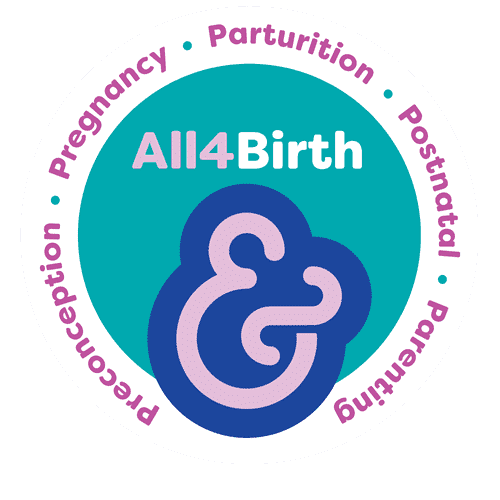Your emotions after a miscarriage
Chelsey Turner
Community Midwife, Blackpool Teaching Hospitals NHS Foundation Trust, BSc (Hons) Midwifery
@ChelseyTurnip
Summary
Having a miscarriage can be an extremely difficult experience for you and your partner and for those close to you. Most importantly, please know that there is no right or wrong way to feel.
Due to the personal and sensitive nature of pregnancy loss, it is rare that we knowingly encounter people who have also been affected. Miscarriage however currently affects one in every four pregnancies.1 Both the physical and emotional experiences of miscarriage will differ from person to person, but in all cases, it is common to feel a wide range of emotions. In this article we will explore the emotional impact of pregnancy loss and how this may affect you and your partner.
What emotions might I experience and why?
 Sadness, shock, anger, fear, numbness, guilt, loneliness and jealousy are all emotions commonly felt following miscarriage. You might find that your emotions are triggered by certain thoughts, people, places or objects. Posts about pregnancy online, or pregnant women walking by may lead to feelings of sadness or jealousy. Pregnancy app notifications may cause anger or upset, or you may attend an event for which you had planned a pregnancy-suitable outfit and feel lonely in the company of that knowledge. You may find that some emotions come entirely out of the blue, in which case, you might find yourself crying with no understanding as to why. If you just feel numb, you’re not alone in that. You may be searching for reasons as to why this has happened but do not blame yourself. Current research suggests that in most cases, it is not possible to give a reason and that the most likely cause is problems with baby’s chromosomes.2 This is far beyond your control.
Sadness, shock, anger, fear, numbness, guilt, loneliness and jealousy are all emotions commonly felt following miscarriage. You might find that your emotions are triggered by certain thoughts, people, places or objects. Posts about pregnancy online, or pregnant women walking by may lead to feelings of sadness or jealousy. Pregnancy app notifications may cause anger or upset, or you may attend an event for which you had planned a pregnancy-suitable outfit and feel lonely in the company of that knowledge. You may find that some emotions come entirely out of the blue, in which case, you might find yourself crying with no understanding as to why. If you just feel numb, you’re not alone in that. You may be searching for reasons as to why this has happened but do not blame yourself. Current research suggests that in most cases, it is not possible to give a reason and that the most likely cause is problems with baby’s chromosomes.2 This is far beyond your control.
How long will I feel like this for?
Where feelings will vary from person to person, how long they last will also vary. Some find that once the physical side of the pregnancy loss is over, emotional healing becomes more manageable. Others feel the emotional impact of the loss for many years afterwards, with no notable end. Again, there is no right or wrong. Be patient with yourself. The pregnancy you had and the loss you have experienced will never be forgotten, but in your own time, when you are ready, you will begin to heal.
How is my partner feeling?
It is likely that your partner is also experiencing some degree of emotional pain. A recent study found that partners reported feelings of sadness, grief and shock but almost a quarter chose not to discuss this through fear of causing further upset or saying the wrong thing. It was also found that when partners did share their feelings, both partners were more able to cope with their loss.3
It is often helpful to talk through emotional hardship, particularly when it is shared, but there may be several reasons why you or your partner finds this difficult to do. Where one of you may be open to talking, the other may not feel comfortable, so it’s important to respect each other’s needs and support each other however you feel is best. You may be feeling alone in this process, in which case, opening up to someone you can trust whether it is a partner, or relative, may be helpful in your process of healing.
Additional help and support
Where talking to partner or relatives is not something you feel ready to do, but you do wish to speak to someone, you may consider talking to your GP. Alternatively there are several organisations dedicated to providing information and support alongside more specialist services such as counselling. A recent study revealed that of 650 women who had experienced pregnancy loss, almost one third suffered post-traumatic stress, one in four experienced anxiety, and one in ten had depression. If you are concerned about you own, or your partners’ mental health you may also seek support from you GP, or one of the organisations listed below.
Final thoughts
However you may feel as you go through this difficult time, please know that you’re not alone. Each of those one in four affected by miscarriage, has a story to tell about a loss of their own. Below, in the real life story Amy kindly shares hers with us, the story of her emotional journey following her missed miscarriage.
Links to resources
 Websites
Websites
The Miscarriage Association A charity offering support to those who have experienced pregnancy loss. You can contact them via their helpline on 01924 200 799, Monday to Friday, 9am until 4pm. Or email info@miscarriageassociation.org.uk.
Tommy’s Offering a bereavement support line run by trained Midwives on 0800 014 7800 Monday to Friday, 9am to 5pm, or they can be contacted via email at midwife@tommys.org.
Cruse Bereavement Care An organisation who help people to understand and cope with grief and loss. You can contact them via their helpline on 0808 808 1677, Monday to Friday, 09:30am until 5pm.
References
1. Tommy’s: Miscarriage Research: Tommy’s website. Published 2020. https://www.tommys.org/our-organisation/our-research/research-miscarriage. Accessed April 24, 2020.
2. Royal College of Obstetricians & Gynaecologists. Patient leaflets: Early miscarriage: RCOG website.Published 2016. https://www.rcog.org.uk/en/ patients/patient-leaflets/early-miscarriage/. Accessed 26 April, 2020.
3. Boyton, P. Coping with Pregnancy Loss. Chapter 7: The needs and feelings of partners. New York: Routledge: 2019.
4. Farren, J., Jalmbrant, M., Falconieri, N.,et al. Post-traumatic stress, anxiety and depression following miscarriage and ectopic pregnancy: A multi-center, prospective, cohort study. American Journal of Obstetrics and Gynaecology. 2020;(4): DOI: https://doi. org/10.1016/j.ajog.2019.10.102









